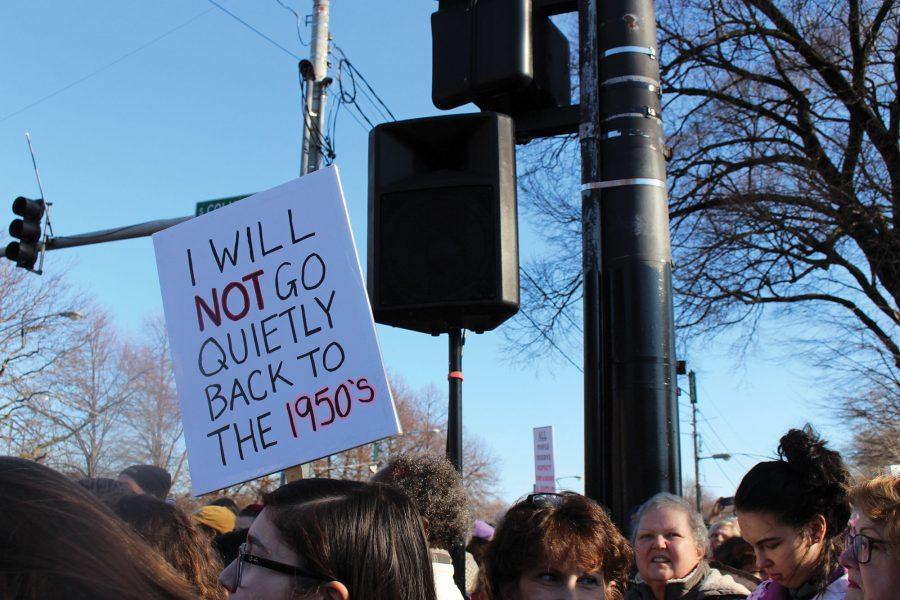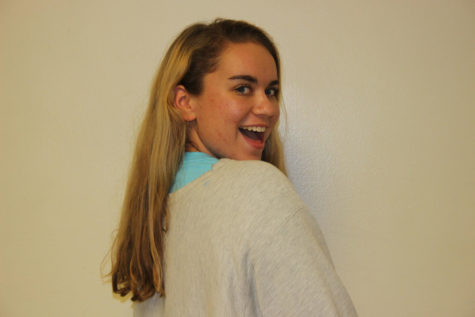Women’s march advocates equality
The Women’s march in Chicago gets students involved, brings potential for change
March 2, 2017
An estimated 250,000 men and women, both young and old, flooded Columbus Drive at the Women’s March on Chicago on Jan. 21. As the crowd chanted “we are not giving up, we are not going away,” Mac Drummond ‘18 noticed a young boy on his father’s shoulders holding a sign.
“I just thought, ‘Wow, this is the future’,” she said. “This little boy might not even remember being at the march, but that fact that he is being raised with the idea of equality so prevalent is such a big deal.”
Women’s March on Chicago (WMC) organizers expected just over 50,000 “allies” to attend the march, according to their website. After their estimation was exceeded by four times the expected amount, they found that protesters had filled the original march route on Jackson Avenue and cancelled the march. However, instead of marching down Jackson, protesters eventually carried out the march by instead progressing down Michigan Avenue.
“One thing I love is that people came here to march for so many different reasons,” WMC ally Emma Thesing ‘18 said. “Today, I march for love, peace, diversity, the environment, education, the arts and more. I march for my Mom and my sisters who have raised me to have compassion for all people no matter gender, sexuality, race, ethnicity, or religion. But most importantly I march for myself, my future and my generation. I hope I can live to see the day when true equality is achieved.”
One member at the WMC, Mary Stone Saunders, wielded a multi-colored sign that read “Thanks Obama” and was urging people to write their gratitude to the former president Barack Obama. She was planning on later leaving the sign outside Obama’s Southside Chicago home to create a sort of memorial for his progressive achievements as president.
“I wanted this to be a march not just for women’s rights but for freedom,” Saunders said. “For freedom of religion, freedom of gender, freedom of speech and freedom of the press. Instead of being angry and spiteful today, I wanted to express my gratitude and thank Obama for everything he did to improve our democracy. I can only hope it’s preserved in the years to come.”
The march, although named for women’s rights, also advocated for the rights of all minorities, Thesing said. People of all ages marched for a single word: equality.
Drummond attests that the legacy of the WMC will be instrumental in bringing change.
“This march proved that the issues of basic human rights that we face today are not small,” she said. “People all around the world are affected by these problems and are no longer going to stay quiet about them. They are aware that the actions they now take could actually change the world for the better. This march started a much bigger movement to finally reach true equality.”



















![Movie poster for '[Rec]" (2007).](https://www.lionnewspaper.com/wp-content/uploads/2023/04/rec-640x900.jpg)



